Abstract
In the context of the malaria situation in tropical Africa, there continues to be an urgent need to make available as widely as possible the treatment of malaria cases and malaria prophylaxis. The current effort to establish community-based primary health care facilities provides an opportunity for application of these measures in wide areas of this region. If successful, the contribution to reducing morbidity and mortality would be substantial. Despite the results of previous studies on the delivery of malaria chemotherapy through primary health care channels, much more information is needed, and careful evaluation of all such programmes is highly important.
There is a continuing need for expert guidance to determine the most appropriate and most effective patterns of drug use under a variety of circumstances. The status of antimalarial drug efficacy is not in any way static, so that constant re-evaluation of drug response, drug acceptance, significant side-effects, and alternative compounds is needed.
Full text
PDF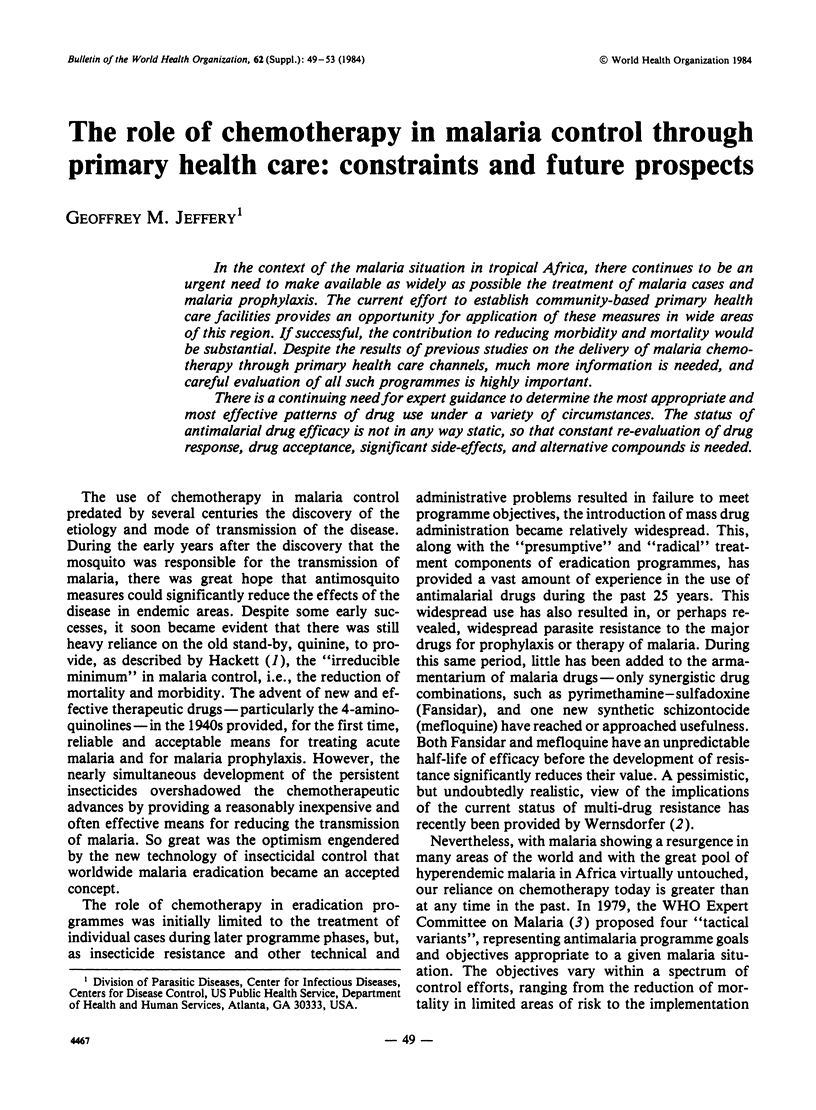
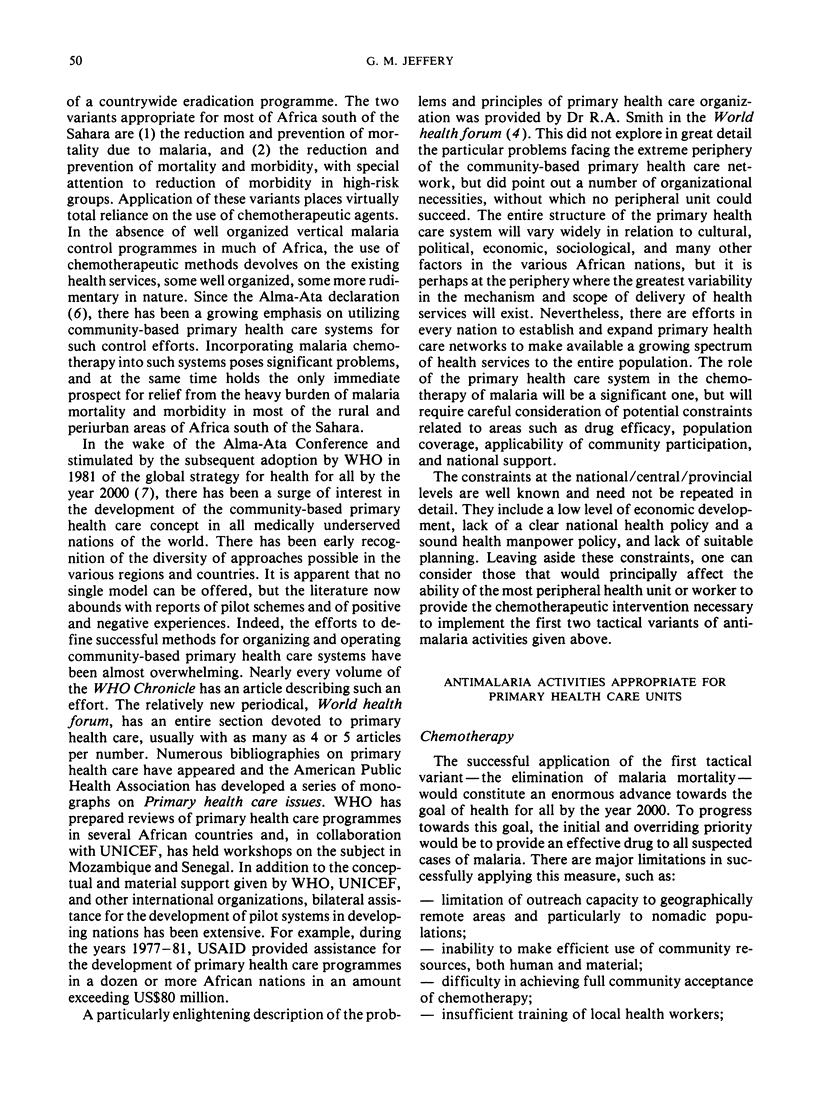
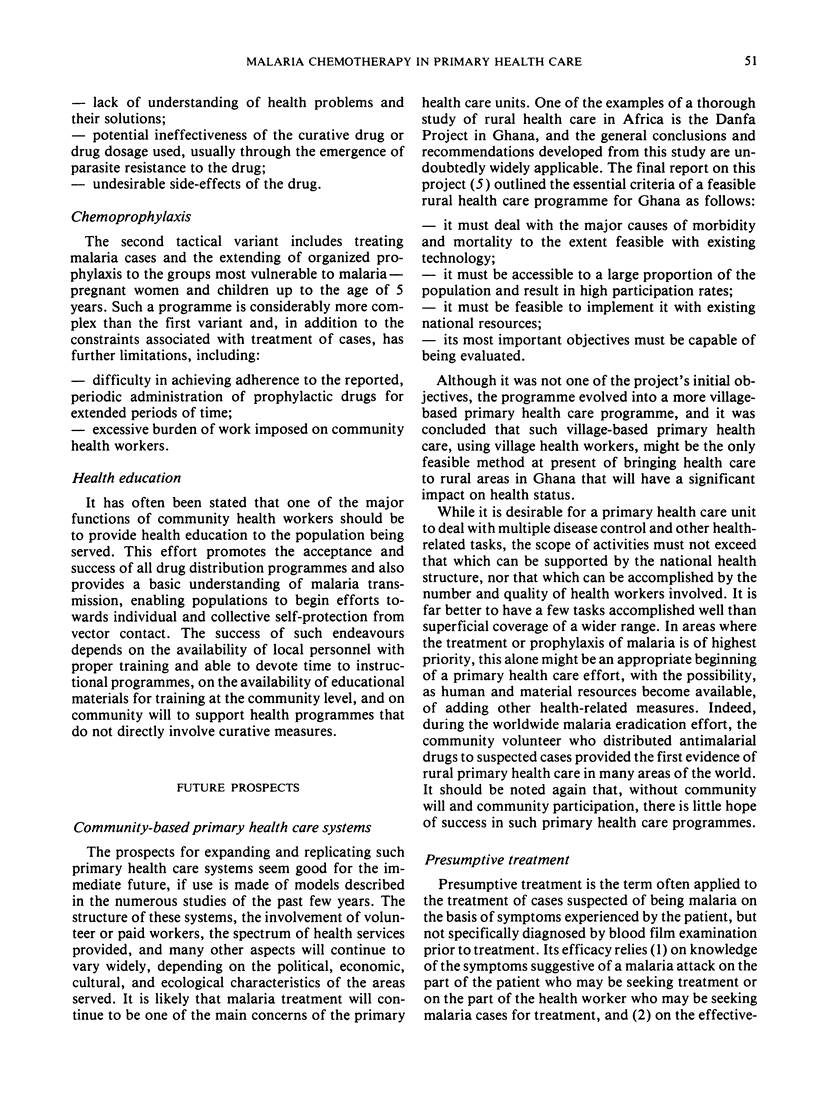
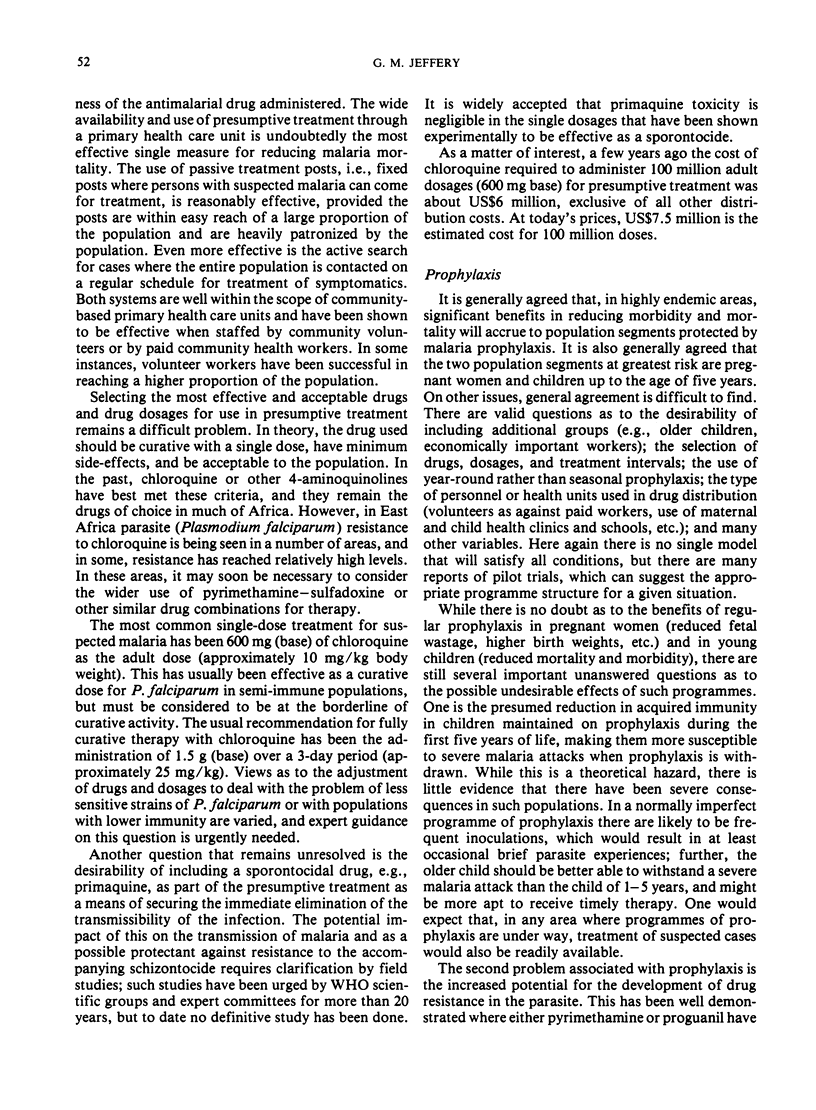
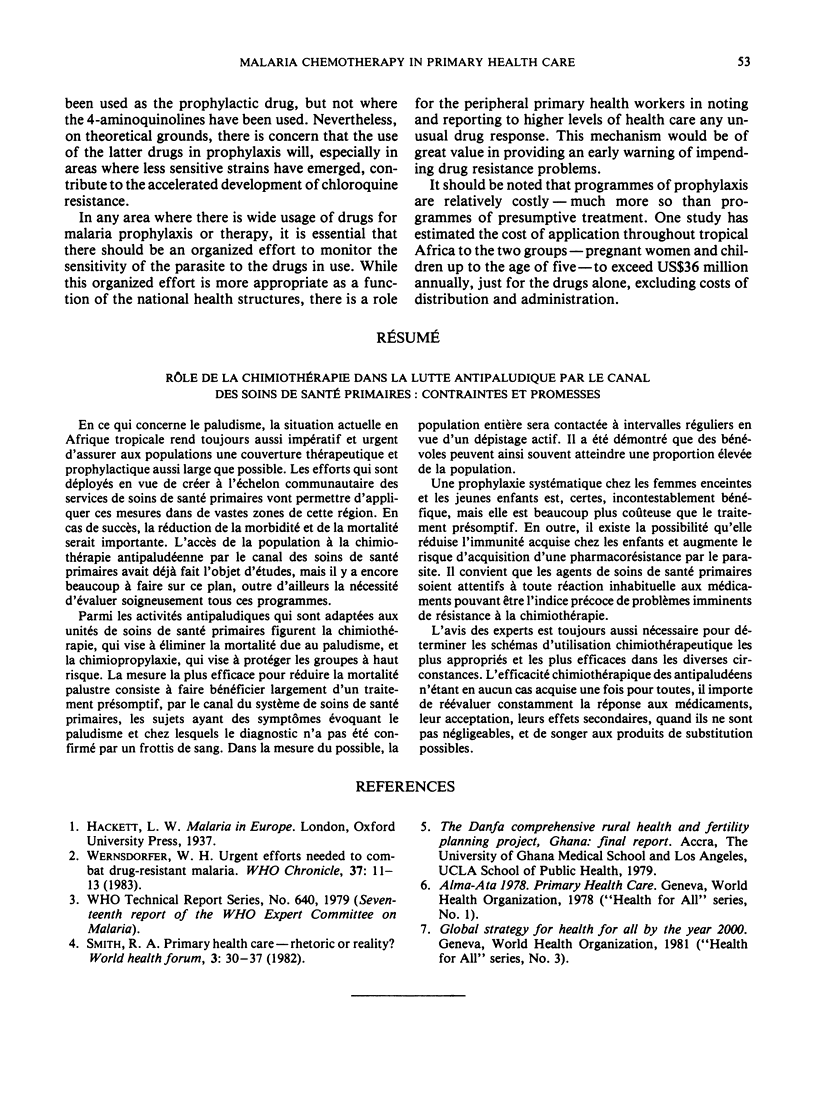
Selected References
These references are in PubMed. This may not be the complete list of references from this article.
- Wernsdorfer W. H. Urgent efforts needed to combat drug-resistant malaria. WHO Chron. 1983;37(1):11–13. [PubMed] [Google Scholar]


